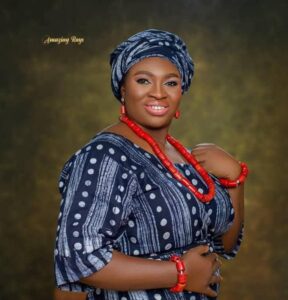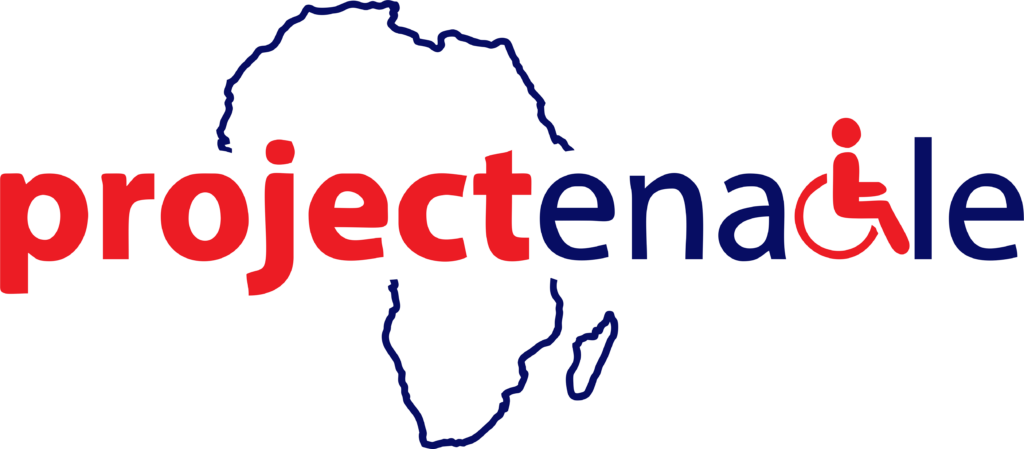
INTRODUCTION
Hellen Beyioku-Alase is a dedicated deaf and disability rights activist with over a decade of experience advocating for the sexual and reproductive health rights of women with disabilities, particularly Deaf women and girls in Nigeria. She holds a Bachelor’s degree in Guidance and Counseling from the University of Abuja and currently serves as the Executive Director of the Deaf Women Aloud Initiative (DWAI), an NGO that amplifies the voices of Deaf women and raises awareness of critical issues affecting them and their children.
She has held key leadership roles, including National President of the Deaf Women Association of Nigeria (DWAN) and Welfare Secretary of the Mandela Washington Fellowship Alumni Association of Nigeria (MWFAAN). A 2021 Mandela Washington Fellow at Drexel University, she is also an alumna of the Disability, Sexuality, and Rights Online Institute (DSROI) and the Women in Leadership and Disability (WILD) program at Mobility International, USA.
Hellen’s work has driven significant progress in healthcare access, service delivery, and information accessibility for Deaf people in Nigeria. Her contributions earned her recognition as one of the Top 30 Future Leaders by Junior Chamber International (JCI) Nigeria and the 2019 Young Leader Award by MWFAAN. She participated as a panelist at the 2018 Global Disability Summit in London and served on the Ministerial Committee for FCT’s Emergency Maternal, Newborn, Child & Adolescent Health Plus Nutrition Activities in 2021.
At what point did you decide to champion the disability cause?
My decision to champion the disability cause was sparked by a pivotal experience in 2012. As a Deaf person, I faced neglect and communication barriers during my first antenatal care (ANC) visit to a hospital.
This experience was a turning point for me. I realized that I was not alone in facing such challenges and that many others with disabilities encountered similar obstacles. This realization ignited my passion to advocate for disability inclusion and rights. However, my experience went beyond mere neglect. I lost my 4-month pregnancy, twins, due to the healthcare providers’ inability to communicate with me. This devastating loss could have been prevented with proper communication and inclusive care.
From Personal Experience to Advocacy
My personal experience fueled my desire to create change. I began advocating for disability inclusion, focusing on healthcare access, education, and economic empowerment. Through collaborations with organizations, policymakers, and communities, I have worked to amplify the voices of persons with disabilities and promote inclusive practice.
Championing the disability cause is not just a passion; it’s a commitment to creating a more inclusive and equitable world. I believe every individual deserves equal opportunities, respect, and dignity, regardless of their abilities.
Since my advocacy journey, I have:
- Trained over 800 healthcare providers and doctors on disability inclusion and stigma reduction, enabling women and girls with disabilities to access healthcare services.
- Advocated for the availability of sign language interpreters in institutions, ensuring effective communication and equal access to services.
How did you manage the major challenge(s) you faced since your advocacy for disability inclusion?
To manage the challenges, I employed persistence, adaptability, and collaboration. My experiences have taught me the importance of these qualities in overcoming challenges and advancing disability inclusion. I remain committed to this critical work and am heartened by the progress we are making together.
Are Organisations of Persons with Disabilities doing enough to shift the narrative from pity to empowerment? What more can be done?
Organizations of Persons with Disabilities (OPDs) have made significant strides in promoting empowerment and shifting the narrative from pity to empowerment. However, there is still more work to be done.
Organizations of Persons with Disabilities (OPDs) often face funding constraints, limiting their ability to scale up programs and services. This can be managed by strengthening partnerships with governments, civil society organizations, and private sector entities that can help leverage resources, expertise, and influence.
Investing in capacity-building programs for OPDs and persons with disabilities can enhance their leadership, advocacy, and technical skills including proposal writing. Adopting intersectional approaches can help address the unique experiences and challenges faced by persons with disabilities from diverse backgrounds.
If you could change one thing about how disability is perceived globally, what would it be?
Charity approach toward disability.
Project Enable Africa is a community development initiative that was founded in 2014 to advocate for the rights and empowerment of persons with disabilities in Africa. Project Enable Africa envisions an African continent that is inclusive for persons with disabilities to prosper as we believe that everyone deserves a good quality life and that no one should be discriminated against on the account of their disability.
Project Enable Africa is dedicated to empowering persons with disabilities, championing their rights, and creating an inclusive society where every ability is celebrated. To date, 5,000 persons with disabilities have been reached, 500 youth with disabilities connected to jobs, 50 disability-confident organizations impacted and 1,000 entrepreneurs supported.


